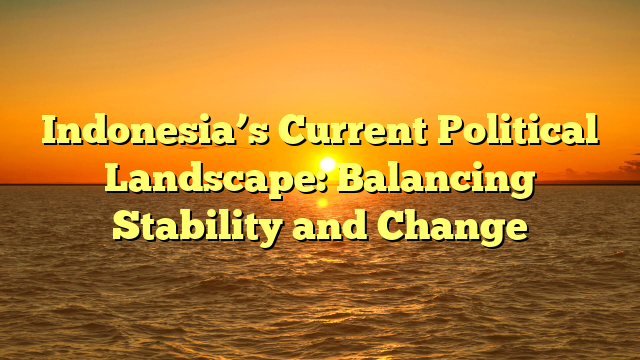Indonesia, the world’s third-largest democracy and Southeast Asia’s largest economy, is experiencing a pivotal moment in its political journey. The nation stands at a crossroads where old political traditions intersect with new demands from an increasingly vocal and tech-savvy population. With upcoming policy debates, generational shifts in leadership, and global challenges, the political climate maritim4d in Indonesia today reflects both continuity and transformation.
One of the most significant developments in Indonesian politics has been the smooth transition following the 2024 general election. The results confirmed the country’s long-standing commitment to democratic practices, even though debates about fairness, transparency, and political maneuvering continue to surface. The election also highlighted the dominance of political alliances, where coalition-building remains the key to securing governance. This reality underscores Indonesia’s highly pragmatic political culture, where ideological differences often give way to strategic partnerships.
At the center of today’s political discourse is the incoming administration’s agenda, which faces mounting expectations from the public. Issues such as economic inequality, corruption, infrastructure development, and education reform dominate the policy debate. Moreover, Indonesia’s role in international affairs, particularly within ASEAN and the broader Indo-Pacific region, is becoming increasingly important. As global powers vie for influence, Indonesia is expected to assert itself as a neutral yet proactive player in regional stability.
Domestically, economic concerns remain the most pressing for ordinary citizens. The government has made substantial progress in expanding digital infrastructure, attracting investment, and boosting manufacturing. However, challenges such as unemployment, wealth disparity, and rising living costs persist. Political leaders are under pressure to deliver tangible improvements, especially for younger Indonesians, who form a significant portion of the electorate. This demographic is more critical, digitally connected, and less tolerant of traditional political rhetoric, pushing politicians to adapt their communication strategies.
Another defining issue is governance and corruption. Indonesia’s Corruption Eradication Commission (KPK) continues to play a central role, but recent years have seen controversies regarding its independence and effectiveness. Many Indonesians remain skeptical about whether political elites are truly committed to systemic reform. Civil society organizations and grassroots movements are becoming increasingly vocal, demanding transparency and accountability from those in power.
Identity politics also continues to shape Indonesia’s political environment. While the nation prides itself on the principle of “Bhinneka Tunggal Ika” (Unity in Diversity), religion and ethnicity still influence voting behavior and public discourse. Political leaders must navigate these sensitive dynamics carefully, balancing national unity with respect for diversity. Mismanagement of such issues risks deepening divisions, but inclusive leadership can reinforce Indonesia’s pluralistic democracy.
Looking ahead, Indonesia’s political stability will largely depend on how effectively the government manages both domestic challenges and international expectations. The ability to sustain economic growth, strengthen democratic institutions, and address inequality will determine public confidence. Furthermore, as Indonesia positions itself as a key voice in global climate negotiations, its environmental policies will increasingly intersect with both domestic development and international diplomacy.
In conclusion, Indonesian politics today is characterized by a delicate balancing act between preserving stability and embracing change. The country’s democratic system, though imperfect, continues to function and evolve. Citizens, especially younger generations, are demanding more transparency, efficiency, and inclusivity. For political leaders, the challenge lies in responding to these demands while ensuring long-term national unity. Indonesia’s trajectory in the coming years will not only shape its own destiny but also influence the broader dynamics of Southeast Asia and the global stage.
